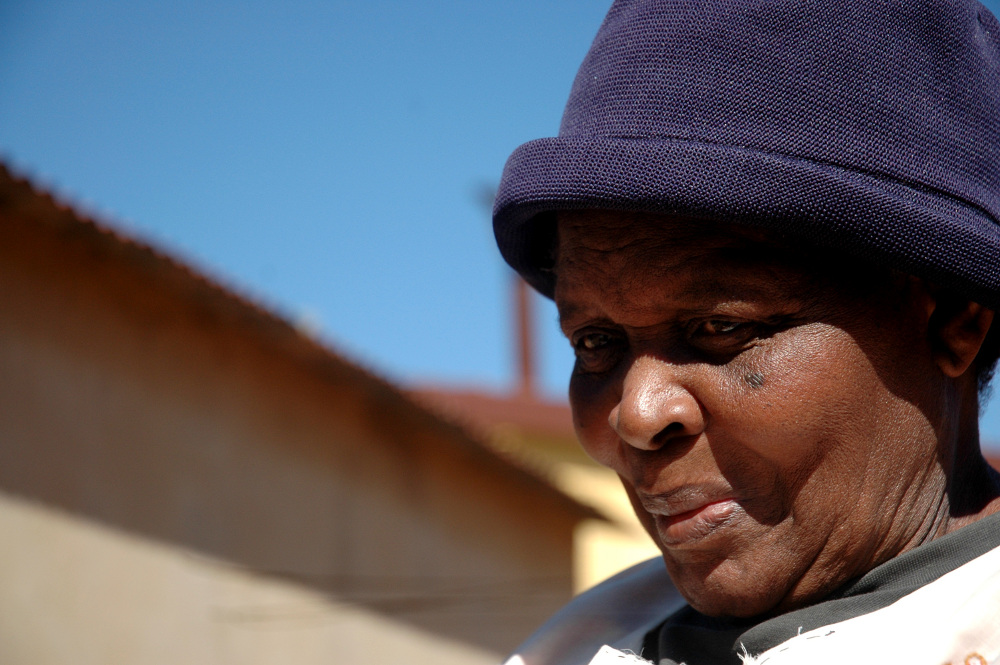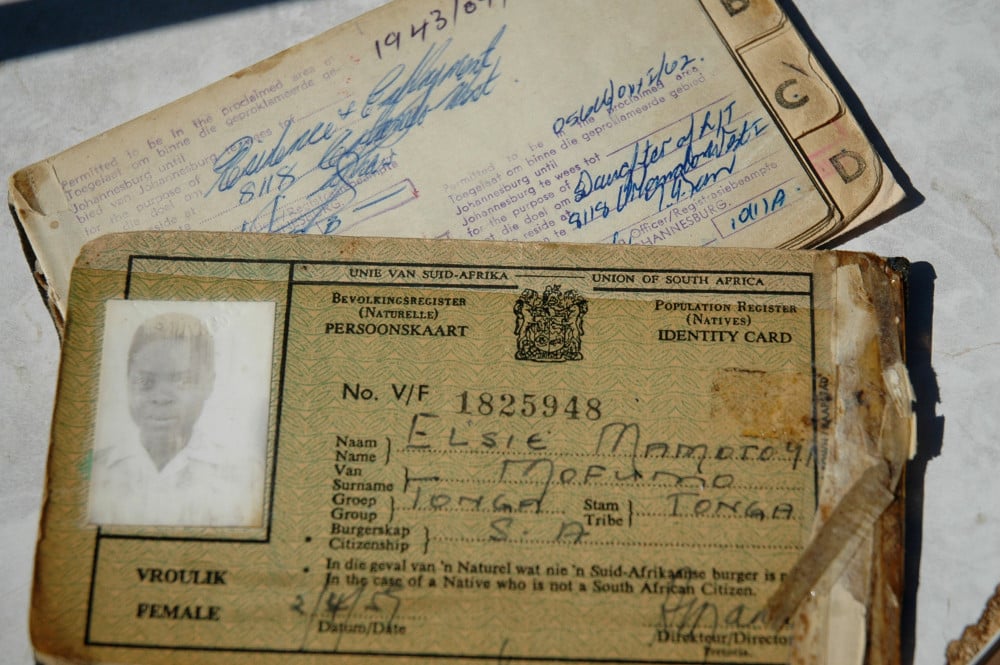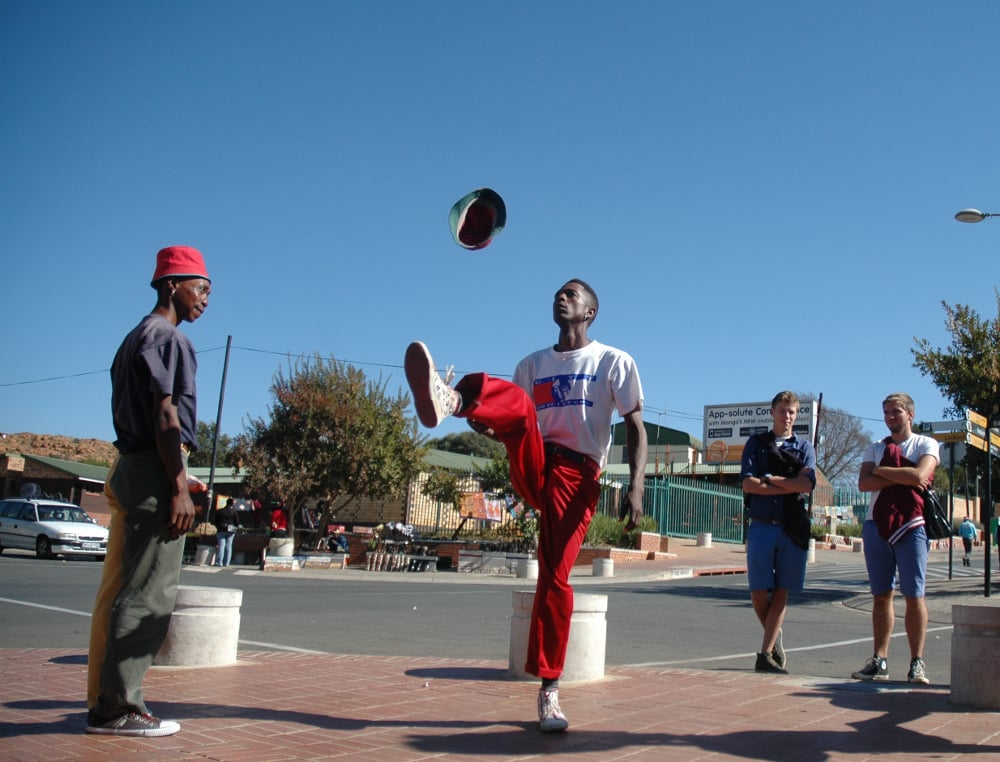Business has been booming in Vilakazi Street since news of Nelson Mandela's illness.
A woman in her mid-20s labelling Nelson Mandela "my Spiderman" is as frown-inducing as it gets, even for Madiba. His recent hospitalisation and fears that he might succumb to lung disease have brought back the reality that he is, in fact, not Spiderman, but definitely something close to it.
Sitting across a busy Vilakazi Street digging into her fish and chips lunch, 85-year-old Mme Mabuza stares at Mandela's house from the corner of her eye and shakes her head in disdain. She sinks deep into her thoughts by the look in her eyes and pulls out a random memory.
"I remember his late son, Makgatho. He had his father's presence, charisma, confidence and he walked tall. That's Nelson Mandela! The man we see today on television who cannot even speak for himself is not him," she shakes her head vehemently.
"We must let him go, he has done his job, and his body has endured cruelties not kind to a human being, he is succumbing to them," she says as the Nelson Mandela Family Restaurant waitron serves her juice.
Mme Mabuza grew up around Madiba and, like most women her age in this buzzing neighbourhood, calls him "Tata", despite the small age difference between the two of them. She speaks of the warmth he possessed during an era where black people had bigger problems than being affectionate towards one another.
Loving for a living
Elsie Mofuna (69), another neighbour, was a teenager when Mandela occupied his Vilakazi home with his first wife, Evelyn, their children and his mother for a period of time. "The character that this man carried consistently throughout my lifetime is credit to his mother Noqaphi Nosekeni. She was a lady who loved for a living."
"It was such an amazing thing for me to see a father so loving, so warm, always happy and ready to smile at everyone. Fathers in the African community were not like that," she recalls of Mandela.
Mofuna beams when she thinks of rides her and other community children used to take in Mandela's car in the 1950s to go collect free milk and bread at a nearby clinic. "Riding another family's vehicle was unheard of during our time, a privilege Tata afforded us with an open heart."

Elsie Mofuna. Picture by Khuthala Nandipha.
Mme Mabuza shares the same sentiment, adding he was "so full of love, always playing with children, paying compliments. Madiba was a man never heard of in our society long before he became the saviour of our people."
They recall a special greeting that he shared with both the young and the old; one thumb up and a chant, "Mayibuye iAfrika", instead of the usual hellos. They also remember every quirky detail about a man who clearly re-defined their idea of a relationship between African men and their community, especially the youth.
They go as far as to attribute their activism in the struggle for freedom to the same man.
Mofuna recalls how she got into trouble with her family for tearing up her passbook into two pieces after hearing reports that Mandela had done the same thing as a sign of defiance to the pass laws of the 1950s. She is incredibly proud of this act so much that she has kept the document as a symbol of her admiration of what Madiba stood for.
More special to them is the day, following his release from a 27 year sentence, marked by bodyguards, he came to Vilakazi Street. "He came to greet each and every single person that he was neighbours with. He knew our names, our parents and he seemed genuinely concerned to hear about those who passed away. I will never understand where that man comes from," remarks Mofuna.
While these women reminisce about a man of a different calibre in his youth and later on, decades later Mandela is a superhero of a different nature for scores of people who camp outside the hospital in Pretoria and his old house in Soweto.

Elsie Mofuna's passbook. Picture by Khuthala Nandipha
Reaping the rewards
Mofuna and Mabuza are pleasantly surprised by the regularity of white people visiting their homes and breaking bread with them just to hear tales about the great man. "They shake our hands, touch our skin," exclaims Mabuza with fresh disbelief.
The influx of tourists from all over the world has caused a rapid boom in the existing businesses on Vilakazi Street and Celliers Street in Pretoria.
Price Malebula of Atteridgeville walks about outside the hospital like a man who has hit the jackpot, a contrast to the gloomy faces of hundreds of passers-by. Malebula is a professional driver who works with international TV networks covering the deteriorating health of Madiba.
"It is an awful thing to say but whenever there is news around Madiba, I eat," he says referring to the income that he claims supersedes any other period in his driving work. Malebula is one of many drivers part of the constantly growing population of campers outside the hospital where Mandela is being treated.
Media crews that have arrived too late to get prime parking space in close proximity to the hospital's gate pay up to R3 500 for a balcony spot in the residential complexes adjacent. Security guards are said to be making a quick buck by renting space as basic as a rooftop.
Meanwhile at Vilakazi Street, the show goes on. Two immaculately dressed young men perform dancing tricks for tourists all day, making up to R300 after they split it. Just behind them tourists also gather for an impromptu oral history about Mandela with glaring inaccuracies from locals.

Vilakazi Street dancers. Picture by Khuthala Nandipha.
Small scale photographers have planted themselves at the entrance of the house to catch the wave of locals who want instant pictures of themselves with the house as a backdrop at R15 per image.
One man jokes with another about the good week they have had and how they pray this boom continues, no matter what happens to Tata.